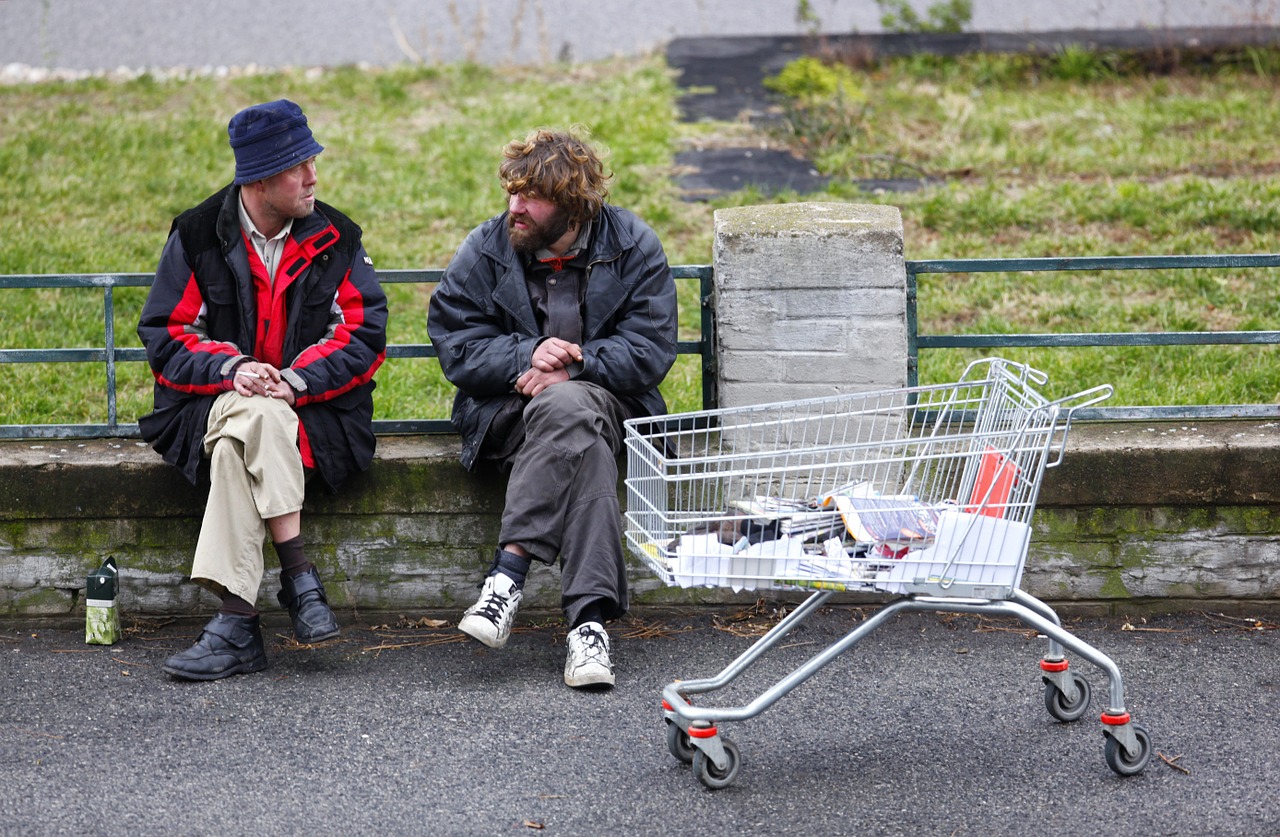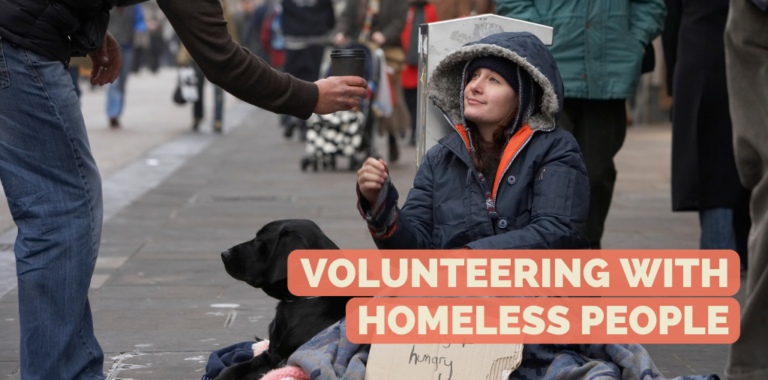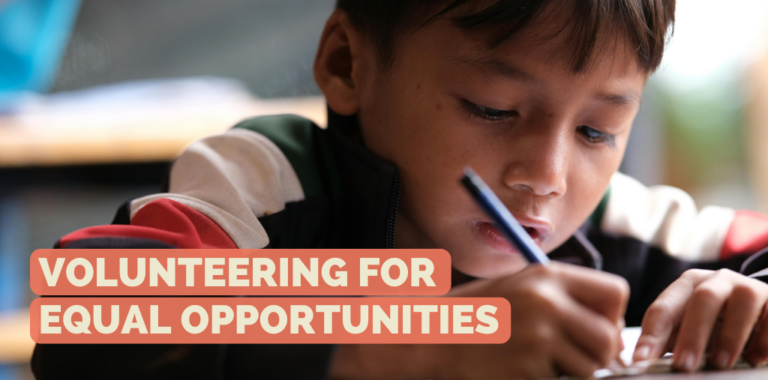5 tips for your volunteering for homeless people
According to estimates of the BAG Wohnungslosenhilfe e.V., more than 678,000 people in Germany have no home and are thus considered as flatless (as of November 2019) – and the trend is rising.
FYI: In German, a distinction is made between not having a home or flat (dt.: wohnungslos) and being homeless (dt.: obdachlos). In the English language this distinction does not exist, but since it is important in the following, we distinguish in this introduction between flatless and homeless.
As long as someone has no fixed abode or protected private housing, but is able to stay overnight with friends or has a more or less “safe” place to sleep in an accommodation (hostel, emergency accommodation, etc.), they are considered flatless. One speaks of homelessness as soon as these reception systems are no longer available and people live on the street. The number of homeless people in Germany is estimated at around 48,000 (extrapolation of a survey in NRW, status 2017). Whether flatless or homeless – the number of people who do not have a real home is alarming. If these numbers concern you as much as they concern us and you want to do more than just donating change or clothes, maybe volunteering for homeless people is the right thing for you. We will let you know here, what you need to keep in mind.
1. Be open-minded
When volunteering for homeless people you will meet individuals from different backgrounds and from very different contexts. In addition to their homelessness, many of them also have addiction and other health problems. Not all of them speak German or even want to speak to someone. For Dr. Gregor Wierciochin, volunteer coordinator of Johanniter in Berlin, the most important thing in working with homeless people is to leave your own clichés at home: “Dealing with homeless people is an opportunity to question your own prejudices and change your perspective. Anyone can find themselves in need or in a health or social imbalance overnight – this is something you should always remember.”
Better than showing pity or regret is to look at the homeless person, talk to them and ask them how they are doing or what their name is. According to Dr. Wierciochin, this allows for interaction at eye-level: “Ultimately, it is two people facing each other – no matter how great the alleged social differences are. It starts with me addressing my guests by their name – that’ s what I do everywhere else too, right?”
2. Define your boundaries
Dealing with each other without reservation also means addressing one’s own limits openly, e.g. when it comes to closeness and distance. “If someone comes too close to me or is rude, it is perfectly okay to talk to them and tell them what kind of interaction I would rather wish for instead,” says Dr. Wierciochin. Since you are rarely alone when working with homeless people, it is important that everyone’s behaviour contributes to a good and safe atmosphere.

3. Be mindful with the topic health
For people who have to live on the street, it is often not easy to take care of their personal hygiene. Even finding a shower opportunity is often a major difficulty, not to mention clean laundry. In addition, homeless people often have to deal with addictions. Since they are not always insured under the regular system, their medical care is very patchy. “It is sometimes difficult for homeless people to stay healthy and well groomed. They can be dependent on donations of clothing and hygiene and on voluntary medical care. And on the fact that they are not excluded because of their health situation,” says Dr. Wierciochin.
This also and especially applies to the work with homeless people. The Johanniter volunteer coordinator continues: “The fear of contagious diseases should also not be too big for the involved people: if there is only little physical contact and the general protective measures are followed, which we all internalised in Corona times, there is little cause for concern.”
4. Don’t get irritated by certain manners
The manners of some homeless people are rough – in dealing with each other and perhaps also with you. Sometimes the language barrier is also a big hurdle. But don’t let that put you off: “There are many non-linguistic communication signals that everyone understands, friendliness is always appreciated,” says Dr. Wierciochin, “When people feel accepted, when they realize that they are being seen, that they can find peace and quiet in a safe environment, surely the tone will become softer.” Last but not least, one is usually not alone: Maybe someone can translate one or the other word, maybe one remembers how to speak a little French, English, Russian or Polish from school? A warm “Salut, comment ça va?”, “Привет!” or “cześć!” has often put a smile on other people’s faces.
And in case it should get a little rough, stay calm and determined and say, maybe in private, clearly what is okay for you and what is not – just like in dealing with any other person.

5. Hold back your opinion
Being open-minded and unconditional also means holding back your opinions. Remember, you learn nothing by judging.
It is neither advisable to impose yourself on homeless people and try to solve all their problems, nor to lecture them. You can’t work with homeless people sitting on your high horse. “Reaching out to a person in need, to be of help in the here and now, by offering a meal or a place to sleep, is certainly a very good start,” says Dr. Wierciochin. Maybe some volunteers feel that certain homeless people are stuck in a vicious circle where need, exclusion and addiction reinforce each other, but here too it is important not to judge.
The Johanniter volunteer coordinator continues: “We rarely know the whole story of the people who come to us, but maybe we don’t have to. What we want to offer our guests is to spend a few hours with us, and not to be those in need, the homeless, but first and foremost to be human beings”.
You want to get involved in volunteering for homeless people?
Then have a look at vostel.de and discover numerous projects for volunteering for homeless people!
More tips and information on volunteering you will find in our volunteer guide or through our social media channels (Facebook, Instagram, Twitter). Here we will keep you up to date on everything important in the world of volunteering! So feel free to drop in there as well! 🙂
Dr. Gregor Wierciochin and your team from vostel.de








Thank you for the communication provided on this web page it is comprehensive and well detailed.
My name is Heather Barrie I am currently living in Berlin and would like to
get involved in volunteering opportunities.
Currently doing some work with Berliner Tafel and feel it is a great organization, I will continue with this.
I can still offer one or two days to your good cause, please advise how I should go about getting involved.
Best,
Heather Barrie
+6597328278 (via WhatsApp is best)
Dear Heather,
Thank you for your interest in volunteering with vostel.de!
We from vostel.de list volunteer opportunities in different non-profit organisations in Berlin, Cologne, Munich, Frankfurt am Main, Nuremberg, Hamburg, Wiesbaden, and Darmstadt. That means we are not the project initiator but an intermediary between NPOs and volunteers.
You can register on our platform, sign up for volunteering opportunities in which you want to get involved in and go to their “working shift” or get in touch with the different NPOs through the platform. Also, you can filter all the volunteering opportunities on vostel.de by your language skills, interests and preferred times.
Please have a look at our volunteer guide to get more information about how to volunteer with vostel.de or have a look at our FAQ.
Don’t hesitate to contact us again if you have any further questions.
All the best
Anna from vostel.de